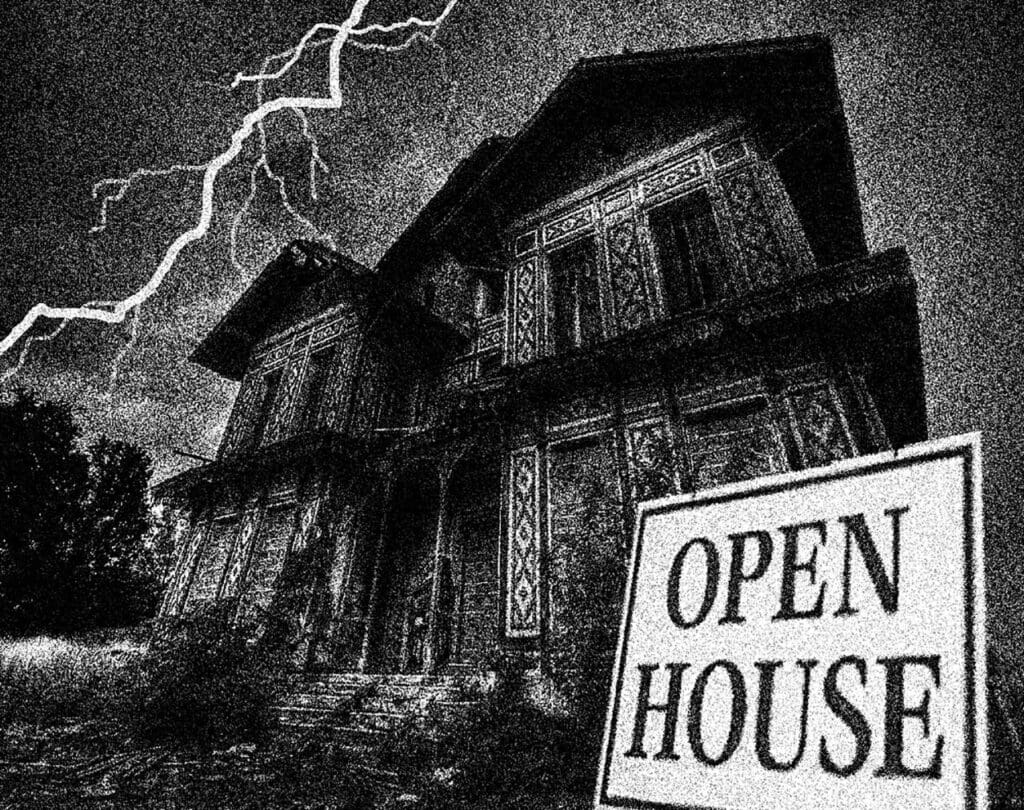Selling your house can be scary business, but what if it is haunted? With Halloween a few days away, let’s discuss real estate disclosure obligations. Are you required by law to disclose your poltergeist housemates?

Disclosure laws differ from state to state. Most states only require sellers to make certain disclosures about the property’s condition or “physical defects” such as black mold or a leaky roof. In some states however, sellers must disclose “emotional defects,” or what realtors refer to as stigmatized properties. Stigmatized property is a property that is less desirable because of emotional defects such as death of an occupant, murder, suicide, if methamphetamines were produced there, or belief that a house is haunted.
Nine states have laws around the disclosure of a death on the property. According to California law, sellers must disclose any deaths that have happened on the property within three years. In Alaska, a death within one year must be disclosed, and in South Dakota, sellers must disclose a homicide on the property. In Connecticut, Delaware, Georgia, New Hampshire, New Jersey and South Carolina, sellers must disclose a death on the property only if asked.
Four states specifically mention paranormal activity in their real estate disclosure laws: New York, New Jersey, Massachusetts and Minnesota. The laws in Minnesota and Massachusetts state it is unnecessary to disclose if the house is haunted by paranormal activity or the supernatural. In New Jersey, a seller must truthfully tell a buyer if their property comes with departed roommates, but only if asked. In the famous 1991 New York case of Stambovsky v. Ackley (commonly known as the “Ghostbusters” ruling), a buyer sued the seller and the seller’s Realtor for failure to disclose the house’s ghostly reputation. Prior to putting the house up for sale, the home had both the notoriety and the media coverage, but the out of town buyers were unaware of the home’s history. Although the court did not rule nondisclosure of the house’s reputation as fraudulent, it did allow the buyer to back out of his contract and get his down payment back. New York State declared that sellers must disclose to buyers that they think a house is haunted only if they have already shared this opinion “to the public at large.” But as long as they keep their supernatural encounters to themselves, they’re under no obligation to speak up when it’s time to sell the home.
Most states, however, follow the contract doctrine of caveat emptor, or “buyer beware,” meaning that buyers are on their own if their purchase is not what was expected. Buyers should be sure to check local disclosure laws and ask their Realtor plenty of questions, as agents and sellers are obligated to be truthful.
If you are wondering about Tennessee disclosure law, Tennessee does not require that sellers disclose that the property “was the site of any act or occurrence which had no effect on the physical structure of the real property”, including murders, suicides or other deaths which occurred on the property. There is no mention of paranormal activity specifically.
If you have any questions about real estate disclosures, who you gonna call? No, not Ghostbusters, but contact our real estate attorneys at KRBHK 615-895-5566 or through our website at krbslaw.com. Who knows, your haunted house may actually be a selling point! But leave the lights on, just in case.

Recent Comments